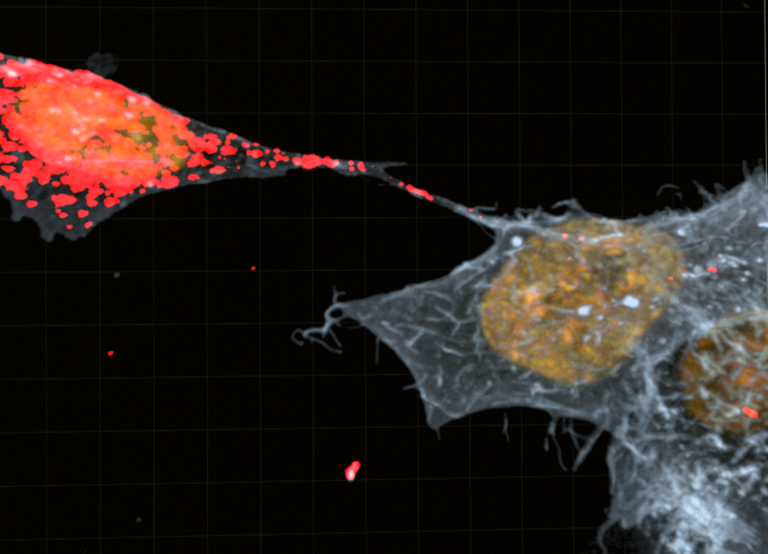A new mechanism behind the formation of metastases identified by Inserm researchers in Strasbourg
Since 2013, the Tumor Biomechanics Lab team led by Jacky Goetz at INSERM has been working on metastatic dissemination. By analyzing the role of blood vessel walls in the spread of cancer cells, they have recently identified a new avenue to halt the formation of metastases.
The Process of Metastatic Dissemination
How do cancer cells leave a tumor to create secondary sites? This is the question that researchers from the Tumor Biomechanics Lab team led by Jacky Goetz at Inserm in Strasbourg (Bas-Rhin) have been trying to answer for over a decade. According to the Cancer Research Foundation, 90% of cancer deaths are caused by metastases.
Metastatic dissemination is not straightforward. Tumor cells leave the primary tumor by traveling through blood or lymphatic vessels, an “ultra-hostile” environment, according to Jacky Goetz. They must then cross a layer of cells called the endothelium. “Once out of the blood vessel, it can create a secondary tumor mass,” explains the researcher.
Key Role of Calcium Ions
Research by the Inserm team, supervised by Naël Osmani, discovered that intracellular calcium fluxes in the endothelium promote the expulsion of tumor cells from blood vessels, leading to the colonization of other organs. “The vascular wall reacts to the presence of a tumor cell by remodeling to promote the extravasation (exit) of this cell. It is therefore not passive,” explains Jacky Goetz.
The presence of the tumor cell in the blood vessel prevents blood flow due to its size, a phenomenon that the endothelial cell regulates by expelling the cell responsible for the occlusion. Calcium ion fluxes allow the remodeling of the endothelial cell through a series of signals. “The more significant the calcium signaling, the more the cell will be encouraged to move,” explains the researcher.
“The presence of tumor cells in the vascular system leads to an increase in calcium entry into adjacent vascular cells,” specifies the official Inserm website. This discovery could open therapeutic avenues. “
“Calcium may be of interest because there are molecules used in clinics, in the treatment of hypertension, that prevent calcium ions from entering cells. If we reduce the extravasation of tumor cells by reducing the influx of calcium ions, we could halt this essential step in the formation of metastases,” analyzes Jacky Goetz.
Discovery to be Validated
The discovery remains to be validated in a preclinical model (mice) to consolidate the tests carried out in the zebrafish model. “We remain humble about its direct application to patients, but we open up possibilities by demonstrating that this crucial step can be controlled by existing drugs,” concludes Jacky Goetz.
Recent Statistics on Metastases
In 2022, approximately 1,851,238 new cancer cases were reported in the United States, and 613,349 people died from cancer in 2023. In France, metastases are responsible for 90% of cancer deaths. These figures highlight the importance of ongoing research to understand and combat metastatic dissemination.
Call for International Collaboration
France, with its scientific advances in cancer research, invites researchers worldwide to collaborate. Together, we can accelerate the development of new therapies and improve treatments for patients. Join us in eradicating metastases and saving lives.





